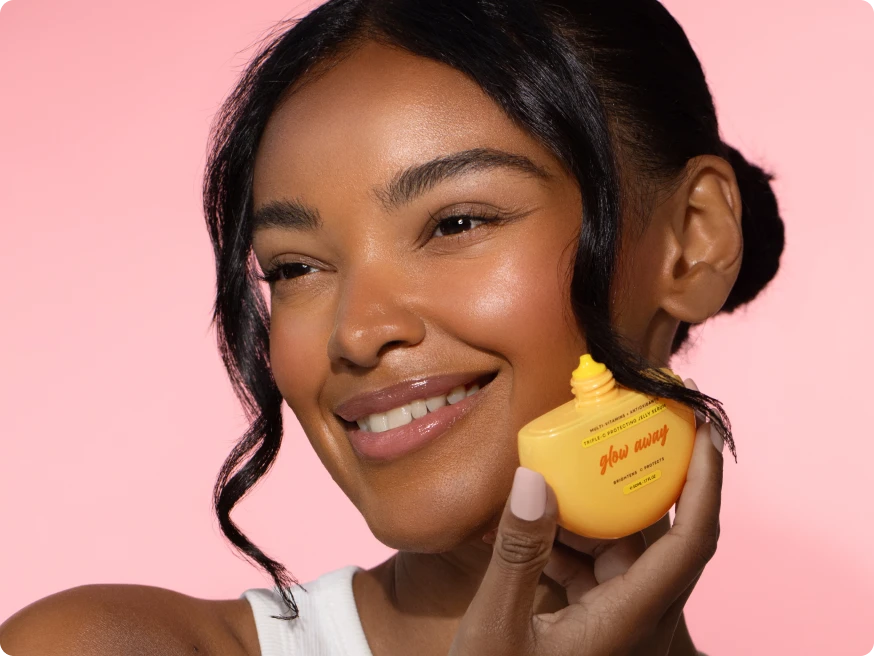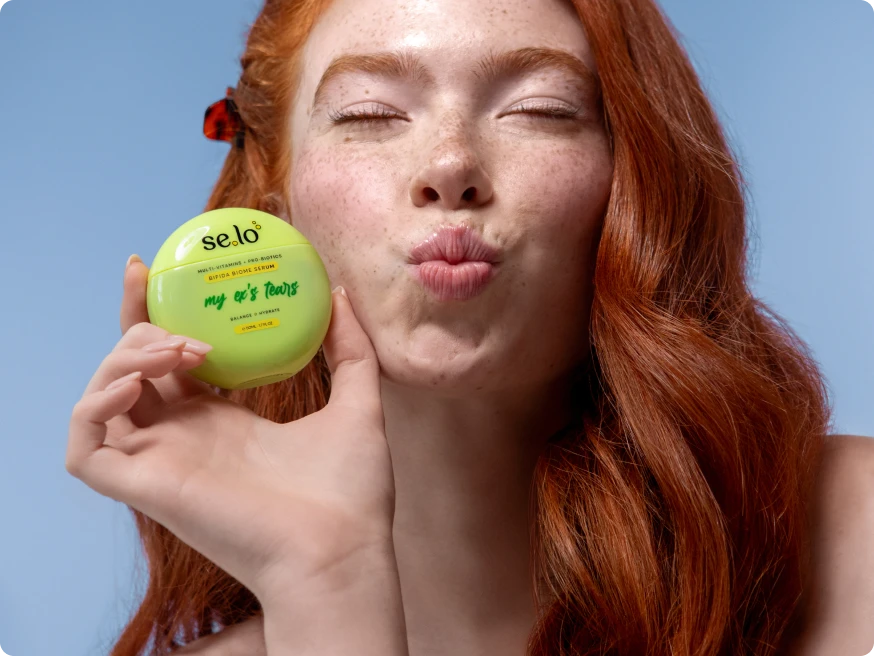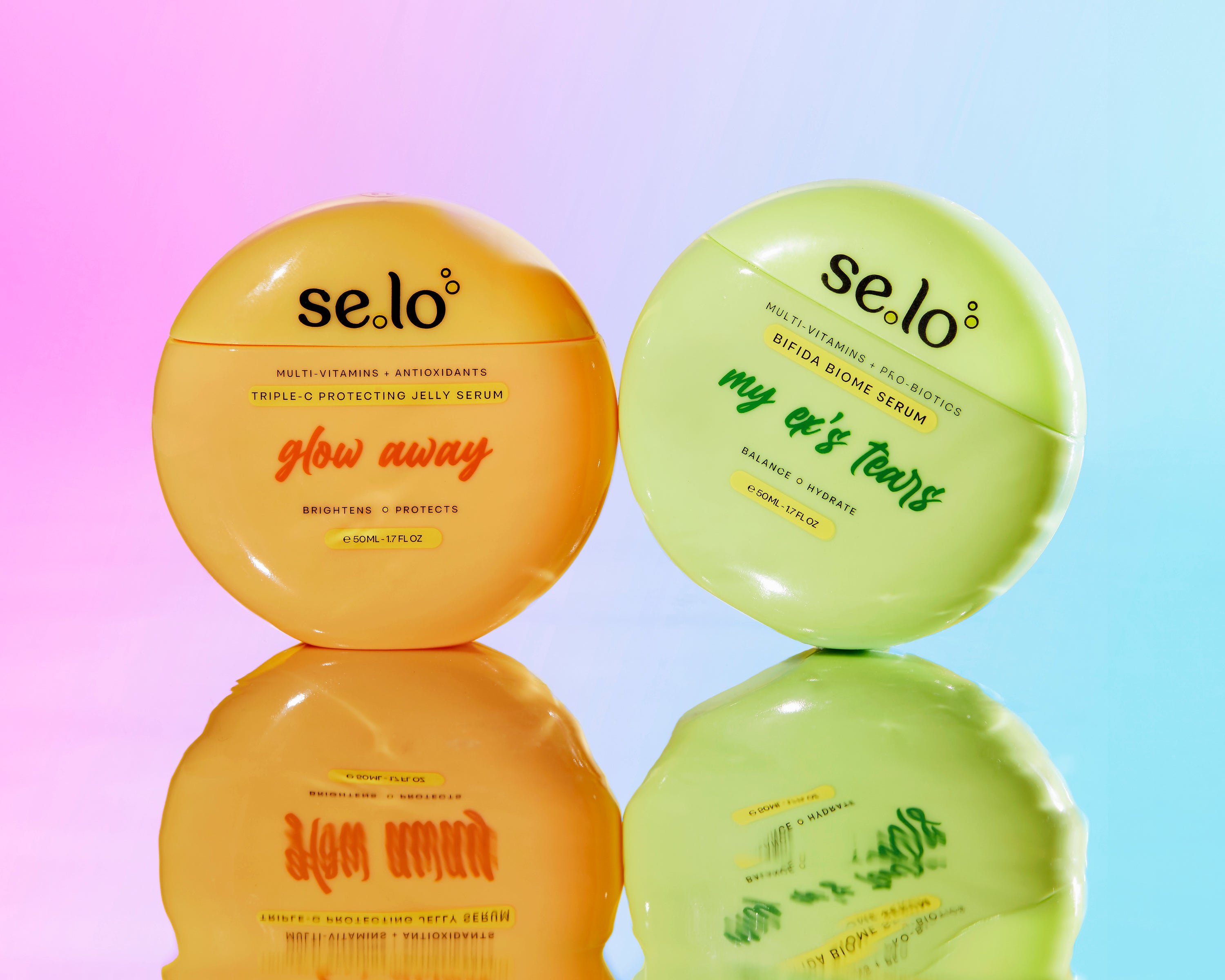Benefits of vitamin c in skin care

Vitamin C
You’ve probably heard people raving about how good vitamin C is for your skin and why you should include it in your skincare routine. For many people, it's a holy grail ingredient and an essential part of any anti-aging skincare routine.
However, you may not know how it works, all of the benefits it can offer your skin, or the best way to use it. There are also a few things that you need to bear in mind when choosing skincare products containing vitamin C if you want to get the best results.
What Is Vitamin C?
Vitamin C is the most abundant antioxidant in your skin and works alongside vitamin E to protect it from free radical damage. Free radicals are unstable molecules that are missing one or more electrons which they try to steal from your healthy cells. This damages your cells and can lead to skin cancer and premature aging.
Antioxidants, like vitamin C, are stable molecules that contain an extra electron that they can donate to free radicals. This neutralizes the free radicals and prevents them from stealing electrons from your healthy cells.
Because your skin is the barrier between your body and your outside environment, it’s constantly exposed to free radicals, like those produced by pollution and the sun, and the levels of antioxidants in your skin become depleted. Your skin’s antioxidant levels also naturally decrease as you get older. When your skin’s levels of antioxidants are reduced, either with age or from free radical exposure, your skin has less protection and you’re more likely to experience premature aging, hyperpigmentation, inflammation, and acne.
Why Should You Use Vitamin C?
When it comes to vitamin C, your skin isn't able to produce it naturally and relies entirely on supplementation. However, most oral vitamin C is used up by other areas of your body, leaving little available for your skin to use. This means that the best way to increase your skin’s levels of vitamin C is by using skincare products that contain it.
Skincare products containing vitamin C have a number of benefits for your skin, including:
- Protecting your skin from free radical damage
- Improving fine lines and wrinkles
- Fading hyperpigmentation
- Repairing your skin
- Improving acne
- Reducing redness and soothing skin
Protecting
While sunscreen is excellent at preventing sunburn and direct damage to the DNA in your skin cells, research suggests it can only prevent around 55% of the free radicals that are produced when your skin is exposed to the sun. However, sunscreens that contain added antioxidants, like vitamin C, can prevent up to 78% of free radical production.
Vitamin C can reduce the severity of sunburn by 40 - 60% and works particularly well when combined with vitamin E and ferulic acid. In fact, research suggests that this combination of antioxidants makes vitamin C eight times more effective than when used alone. One of the reasons that vitamin C and vitamin E work so well together is that vitamin C can restore the oxidized vitamin E in your skin.
Anti-Aging
Free radicals can cause fine lines, wrinkles, and skin sagging by breaking down the collagen, elastin, and hyaluronic acid in your skin. Not only does vitamin C prevent the breakdown of collagen by protecting your skin from free radicals, but it also encourages your skin to create new collagen. In fact, vitamin C is actually an essential part of your skin’s collagen production process, which makes it an important skincare ingredient for any anti-aging skincare routine.
Research has demonstrated that vitamin C can boost collagen production in both old and young skin.
Brightening
Vitamin C can help fade dark marks and brighten your overall complexion by preventing the activity of tyrosinase, an enzyme that’s required for your skin to produce melanin. Research suggests that vitamin C is equally as effective as hydroquinone at reducing hyperpigmentation.
Sun damage and inflammation can also cause your skin to produce too much melanin which leads to dark patches of skin and an uneven skin tone. As vitamin C prevents sun damage and reduces inflammation, it can also prevent abnormal pigmentation from developing in the first place.
Skin Repairing
Free radicals cause skin inflammation which interferes with your skin’s renewal process and can delay wound healing. Vitamin C helps reduce inflammation and allows your skin to repair itself. It also has antibacterial properties which can prevent the colonization of bacteria in any open cuts or scrapes and allow for faster healing.
Vitamin C deficiency has been associated with poorer healing wounds which can be corrected by oral supplementation. Research has demonstrated that topical vitamin C can also increase the speed of wound healing.
Soothing
Vitamin C can help soothe your skin by reducing inflammation and increasing skin hydration. Research suggests that vitamin C can increase the production of your barrier lipids (e.g. ceramides, cholesterol, and fatty acids).
These lipids hold your skin cells together and create a physical barrier that keeps water in your skin and irritants out. Vitamin C has also been shown to increase the levels of glycosaminoglycans, like hyaluronic acid, in your skin.
Acne-Fighting
If you suffer from acne, research suggests you may also have lower levels of vitamin C, as well as vitamins A and E, and that including these antioxidants in your skincare routine may lessen acne severity.
Acne has also been linked to a higher concentration of skin surface lipids that, when oxidized by free radicals, can clog your pores. Vitamin C can reduce this oxidation by up to 40% and may be a more effective and better-tolerated acne treatment than benzoyl peroxide. It’s also an excellent anti-inflammatory which means it could help reduce the redness and swelling associated with acne.
Criticisms of Vitamin C
While vitamin C is an excellent skincare ingredient with a wide variety of benefits for your skin, there are a few things to bear in mind.
For example, it’s very effective at neutralizing free radicals and protecting your skin. However, some research suggests that small amounts of free radicals are actually good for you. The cells in your body seem to require a specific balance of free radicals and antioxidants in order to function properly. High levels of free radicals have been found to slow tumor growth and destroy cancer cells but this process is prevented by antioxidants. Some research also suggests that free radicals can have antibacterial effects which have led to claims that potent antioxidants, like vitamin C, could worsen acne.
However, there isn’t any research to suggest that this is the case and it’s not clear which bacteria the free radicals specifically target. The biggest problem with vitamin C is that, in its active form (ascorbic acid), it’s notoriously unstable and requires very specific conditions in order for it to penetrate your skin.
For example, it should be formulated at a pH of 3.5 or lower in order to penetrate your skin and shield it from light and air to prevent it from becoming oxidized.
Vitamin C Derivatives
Due to the instability of ascorbic acid, a number of vitamin C derivatives have been designed that convert to ascorbic acid once they enter your skin. There’s much less research for vitamin C derivatives than for ascorbic acid itself, however, they can still offer excellent benefits for your skin.
Examples of vitamin C derivatives that you may find in your skincare include:
- Magnesium Ascorbyl Phosphate (MAP)
- Sodium Ascorbyl Phosphate (SAP)
- Ascorbyl-6-Palmitate( AA-PAL)
- Tetrahexyldecyl Ascorbate (THD)
- 3-O Ethyl Ascorbate (EAC)
The most common of which are usually MAP and SAP. These derivatives are both water-soluble, stable at a neutral pH of 7, and may be gentler on your skin than ascorbic acid (AA). Research suggests that neither MAP nor SAP is as effective as AA when it comes to their antioxidant activity. However, MAP was equally as effective as AA at increasing collagen production.
SAP was also able to increase collagen production as effectively as AA but only when it was used at a much higher concentration. MAP and SAP outperform AA in other areas though. For example, MAP is better at hydrating skin than AA while SAP is the form of vitamin C that has been found to be an effective acne treatment.
Research suggests that 1% SAP had a strong antibacterial effect against acne-causing bacteria and also prevented sebum oxidation by up to 40%. At 5% strength, SAP was found to be an effective acne treatment in a clinical trial.
Another popular vitamin C derivative that you may come across in your skincare products is tetrahexyldecyl ascorbate (THD) which, unlike vitamin C and other derivatives, is oil-soluble. Ingredients that are oil-soluble find it much easier to penetrate your skin barrier as your skin barrier is full of oily lipids. For this reason, THD is able to penetrate as far down as your dermis while AA cannot. It also offers your skin all the same benefits of AA but can be combined with AA for even better results.
What To Look For In A Vitamin C Product?
Because of its instability, vitamin C products should, ideally, be contained in opaque and air-tight packaging. For example, using a vitamin C serum in a pump bottle or capsule means that it’s only exposed to light and air when you use it. Opaque dropper bottles can protect vitamin C from light but expose it to air each time the bottle is opened. Some people find that their vitamin C serums last longer if they’re kept in a refrigerator but this isn’t essential as most skincare products are designed to be stored at room temperature.
Products containing vitamin C should also have a pH below 3.5. Few brands list the pH levels of their products so this can be slightly tricky, although some brands will tell you if you contact them. You can also test a product's pH level yourself by using indicator strips that are easily available on Amazon. When it comes to the concentration/strength of your vitamin C products, research suggests that AA is most effective at concentrations between 8-20%. Anything above 20% does not appear to offer any additional benefit but may increase your risk of experiencing skin irritation.
Antioxidants, like vitamin C, work best when combined with other antioxidants as they enhance each other's antioxidant activity. This is particularly the case when combining vitamin C, vitamin E, and ferulic acid.
How To Use Vitamin C In Your Skincare Routine?
Vitamin C can be used once or twice a day, however, if you’re only using it once a day, it’s better to use it in your AM routine as it can work in synergy with your sunscreen to protect your skin.
Apply your vitamin C serum to freshly cleansed skin every morning and follow with a moisturizer and sunscreen. If your skin isn’t sensitive you can apply your vitamin C to slightly damp skin as damp skin is more permeable which makes it easier for the vitamin C to penetrate your skin. There are a few myths surrounding what ingredients you can and can’t use with vitamin C, but as long as you don’t experience skin irritation, it’s fine to layer vitamin C with retinol and acids.
However, as your skin’s natural cellular turnover rate is higher at night, acids and retinol are better left to your PM routine so there’s not usually a need to layer unless you’re using your vitamin C twice a day.
One ingredient to avoid using with vitamin C, however, is benzoyl peroxide. Benzoyl peroxide is a common acne medication that kills acne-causing bacteria by creating oxygen in your skin. As vitamin C is easily oxidized, it’s best to avoid using these two ingredients at the same time of day.
Conclusion
Vitamin C is the most abundant antioxidant in your skin and protects your skin from free radical damage. It can also boost collagen production, fade hyperpigmentation, and treat acne. There are many different derivatives of vitamin C and, while ascorbic acid is the most effective, other derivatives can offer similar, and sometimes additional, benefits.
0 comments





